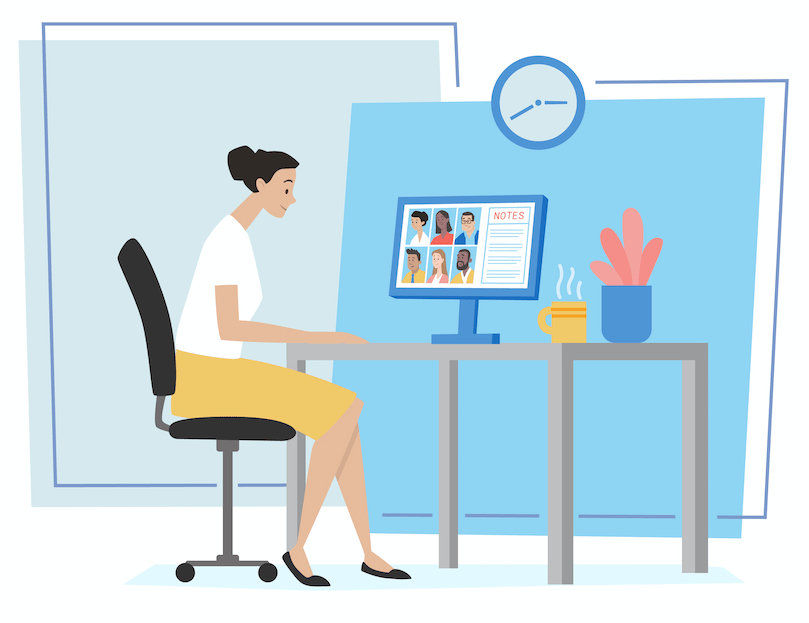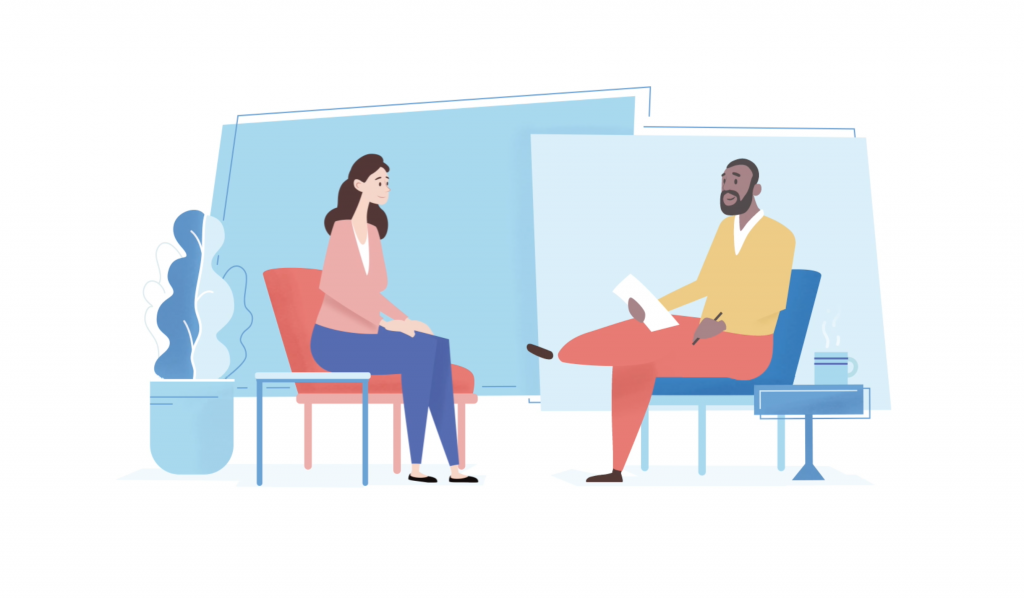Clinical supervision is an important part of the therapeutic process. It provides therapists with feedback, opportunities to learn new skills and it helps reduce the risk of ethical violations. This blog post will discuss clinical supervision ethics, tips for therapists in clinical supervision, and how to find clinical supervisors.
Contents
What Is Clinical Supervision?

Clinical supervision can be defined as a collaborative relationship between an experienced professional, known as the supervisor, and someone who is receiving or has received services. The purpose of this relationship is to guide therapy service providers in meeting their duties under state licensure laws, agency policies, and ethical principles/standards that apply within that setting. The purpose of clinical supervision is to provide a safe, ethical and effective environment for the therapist.
Why Is Clinical Supervision Important?
There are many reasons why clinical supervision is important. It can help therapists stay current on the latest research and treatment approaches, increase their skills in working with specific populations and maintain adherence to ethical principles. In addition, it can also provide an opportunity for therapists to reflect on their clinical work and gain feedback from a more experienced professional.
What Is Clinical Supervision Model?

There are several different models of clinical supervision. The most common model used is the behavioral approach to supervision. It follows a specific set of steps for each session that includes:
- Both general and individualized goals,
- Tasks that need to be completed between sessions or during sessions,
- Feedback from supervisors on progress made in completing these tasks/goals, and
- Regular evaluation by the supervisor of the therapist’s clinical work
What Are Different Levels Of Clinical Supervision?
There are three different levels of supervision:
- Supervision where the therapist is still in training and learning to be an entry-level clinician.
- Clinical supervisors who provide ongoing support, observation, and guidance to therapists at all stages within their professional development.
- Advanced clinical supervision is often focused on problems with specific populations or situations
Clinical Supervision Ethics: HIPAA And Other Considerations
When providing clinical supervision, it is important to be aware of the ethical principles that apply. One such principle is HIPAA (Health Insurance Portability and Accountability Act). The HIPAA Privacy Rule protects the privacy of individually identifiable health information.
This means that when providing clinical supervision, supervisors should take steps to ensure that all information shared between the supervisor and supervisee is private. This means not disclosing any identifying or other sensitive information unless consent has been obtained from clients/patients who are receiving services directly from the supervised professional.
In addition, supervisors should be aware of state laws regarding confidentiality as well as agency policies that may apply.
NOTE: When providing clinical supervision, supervisors need to be aware of HIPAA and other privacy laws. In addition, supervisors should ensure that all records about the therapist’s clinical work are kept in a secure location.
What Are The Ethical Obligations Of Clinical Supervisors?
Clinical supervisors have several ethical obligations that include:
- Provide a safe and supportive environment for the therapist.
- Help therapists maintain their clinical skills.
- Keep abreast of current research and treatment approaches.
How To Find Clinical Supervision Opportunities?
There are three different ways to find clinical supervision opportunities.
- One way is to ask colleagues if they know of any supervisors who could provide the type of supervision you need.
- Another option would be to contact your local state licensure board and see if there are listings for approved supervisors in your area.
- Finally, it may also be possible that a local university offers clinical supervision to graduate students or interns.
NOTE: One of the most important tasks when providing clinical supervision is finding a local supervisor. This can be challenging especially if there aren’t any supervisors in your area or within traveling distance from your home/office. In these cases, online supervision may be a viable option.
Tips

For Therapists In Clinical Supervision
As a therapist, there are a few things to keep in mind:
For therapists who are seeking clinical supervision, there are some important things to consider.
List Your Considerations
When seeking clinical supervision, therapists should look for several specific qualities and characteristics that can be helpful when providing effective care. Some important considerations include:
- Is the supervisor familiar with your particular area(s) of expertise?
- Does this person have experience working with clients/patients who share similar demographics as yourself (e.g., age, race, religion)?
- Is the supervisor able to provide constructive feedback?
- Can the supervisor articulate what they are seeing in your clinical work and why they believe certain interventions or techniques are or are not effective?
NOTE: Supervisors should also be aware of their own biases and take steps to mitigate any negative effects these may have on the therapeutic relationship.
Be Open And Honest
When working with supervisors, it is important to be open and honest about any concerns or issues that may arise throughout supervision. This can help to ensure that both the therapist and supervisor are working together towards a common goal. This will also help to minimize any conflict between them, which can interfere with clinical training.
Use Their Experience
A good way for therapists in supervision to get the most out of their experience is by asking questions about specific topics or issues they may be struggling with at work. For example, a therapist who is having difficulties with a particular client may benefit from talking about situations and approaches that have worked in the past.
Document Your Progress
In addition, therapists should remember to document their progress throughout supervision so they can look back at this information when needed or move forward into clinical work without needing supervision. This will help them feel well prepared if faced with similar issues in the future.
REMEMBER
When working with a therapist who is in clinical supervision, there are a few things to keep in mind:
- Make sure you arrive on time for your sessions and be prepared to discuss the case(s) you will be working on.
- Be open to feedback from your supervisor and take it to heart.
- When providing case material, be sure to include all pertinent information (e.g., client history, current symptoms, treatment goals, etc.).
- Ensure that you keep up with your own clinical work and continue to receive individual therapy as needed.
- Be respectful of your supervisor and their time.
Tips For Supervisors In Clinical Supervision
For supervisors who are providing clinical supervision, there are a number of important considerations to take into account.
Establish The Ground Rules Early On
It is very important for therapists and supervisors to set the ground rules early on in the supervision process so everyone knows what they can expect from each other going forward. This will help to ensure that the therapeutic relationship is not compromised in any way.
Be A Role Model
Another important task for supervisors is to serve as role models and display appropriate professional behavior while supervising their therapist trainees. This includes: Being on time; offering support, guidance, and constructive feedback; providing regular supervision while encouraging accountability from therapists; and maintaining appropriate professional boundaries.
Be Familiar With HIPAA
Supervisors should also be familiar with the Health Insurance Portability and Accountability Act (HIPAA) and take steps to ensure that all Protected Health Information (PHI) is kept confidential at all times.
Think About The Therapist’s Developmental Level
When working with therapists in clinical supervision, it is important to think about their developmental level and adjust the supervisory process accordingly. For example, a supervisor working with an experienced therapist may need to provide less feedback than they would if working with a therapist who is just starting out.
Conclusion
Clinical supervision can be a great resource for therapists. It provides an opportunity to receive feedback on clinical work, learn about new approaches, and develop relationships with other professionals. However, it is important to remember that clinical supervision is not a substitute for therapy. Supervisors should only provide feedback and guidance within the scope of their training and experience.
For more information, please contact MantraCare. Online therapists are increasingly important in today’s world because they provide a convenient and accessible way for people to receive mental health support and treatment. Visit MantraCare If you are searching for “therapist near me”. Book a trial Online therapy session


